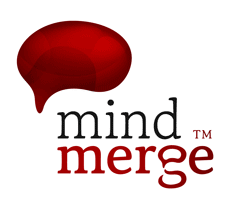Business Writing Workshop
What you'll learn
Gain better awareness of common spelling and grammar issues in business writing.
Review basic concepts in sentence and paragraph construction.
Know the basic structure of agendas, email messages, business letters, business proposals, and business reports.
Know tips and techniques to use when deciding the most appropriate format to use for agendas, email messages, business letters, business proposals, and business reports.
Know tips and techniques in writing agendas, email messages, business letters, business proposals, and business reports.
Gain an overview of Request for Proposals, Projections, Executive Summaries, and Business Cases.
Define proofreading and understand techniques in improving proofreading skills.
Define peer review and list ways peer review can help improve business writing skills.
List guidelines in printing and publishing business writing.
Accountability in the Workplace Workshop
What you'll learn
Define accountability and personal accountability
Differentiate between ownership and accountability
Use feedback as a tool to enhance performance
Understand the barriers of workplace accountability
Focus on building accountability leadership
Effectively set SMART goals
Identify the components of the cycle of accountability
Work towards achieving the benefits of accountability
Certificate in Engineering, Procurement, and Construction (EPC) Contracts
What you'll learn
Achieve a complete overview of EPC projects
Recognize the critical elements of a project plan and contracting strategy
Develop an understanding of the risks involved and necessary aspects of the EPC contracts
Get acquainted with the EPC contract award process
Gain insights into effective contract administration and performance management
Adding Value through Procurement
What you'll learn
Analyze internal spend and supply market dynamics to provide a foundation for sourcing plans
Execute different sourcing strategies to optimize savings and ensure supply security
Identify appropriate suppliers for effective execution of sourcing plans
Describe operational and strategic procurement processes for better value
Manage performance of procurement processes for continuous improvement
Warehouse Operations and Management
What you'll learn
Explain the challenges, objectives and functions of warehousing
Perform ABC inventory classification and cycle counting and calculate record accuracy and discrepancies
Describe the different types of storage and material handling systems
Improve supervisory skills and deal more effectively with warehouse staff issues
Develop better skills for housekeeping and safety within the warehouse
Measure warehouse productivity using the right Key Performance Indicators (KPIs) and conduct a scientific audit of the warehouse
Certified Procurement Professional (CPP)
What you'll learn
Identify the important organizational role of the procurement department
Use proper negotiation techniques with suppliers
Evaluate the performance of the department at the macro level
Decide how to choose the best suppliers for their operations
Apply the latest innovative procurement techniques for the 21st Century
Purchasing Management and Cost Saving Techniques
What you'll learn
Define the strategic role of the purchasing department
Perform accurate supplier evaluation
Develop effective negotiation strategies with all suppliers
Explain the importance of value analysis to purchasing
Evaluate the performance of the department using proper Key Performance Indicators (KPIs)
Improve the efficiency of the purchasing department
Logistics Management
What you'll learn
Recognize modern supply chain and logistics trends as a basis for sustainable performance
Describe the role of transportation in logistics and identify opportunities for operational improvement
Identify the role of warehousing, focusing on operational throughput and performance optimization
Employ effective techniques for optimizing inventory
Apply the Supply Chain Operations Reference (SCOR) framework to manage strategic, operational and tactical facets of logistics
Supply Chain Operations: Principles for Continuity and Sustainability
What you'll learn
Identify the foundations of strong supply chains for continuity and sustainable operations
Outline supply chain design practices for optimum performance
Engage in continuity planning to manage supply chain interruptions
Develop stakeholder engagement strategies to improve supply stream resilience
Recognize ethical, sustainability and responsibility practices as a backbone for strong supply chains
Inventory and Supply Chain Management
What you'll learn
Describe the objectives and functions of inventory and supply chain management (stock control, purchasing, stores and physical distribution) and explain how they relate to each other
Categorize stock items based on the ABC classification model
Calculate future demand for different stock items
Identify Reorder Points (ROP), Economic Order Quantity (EOQ) and Safety Stocks (SS) for different stock items
Apply the basic purchasing processes and use Incoterms appropriately
Identify best practices in warehouses to maintain accurate inventory records
List the various transportation functions and costs
Finance for Non-Finance Professionals
What you'll learn
Define the four key financial statements: balance sheet, income statement, cash flow, and changes in owner equity, as well as critical financial terms such as profit, margins, and leverage
Interpret the financial health and condition of a company, division, or responsibility center and use financial information for management and evaluation
Prepare an operating budget and relate it to the organization's strategic objectives
Apply capital budgeting techniques to evaluate long-term decisions in projects and capital expenditures
Use cost behavior concepts to calculate breakeven point and enhance short-term decision making
Balanced Score Card
What you'll learn
Explain the benefits and importance of a Strategy Focused Organization (SFO)
Develop a Strengths, Weaknesses, Opportunities and Threats (SWOT) analysis, vision and mission statements and strategic goals for their organization or department
Use 'SMART' objectives and key performance indicators to track the performance and productivity at all levels in their organizations
Apply the approach of best-in-class benchmarking technique to set targets for each KPI
Design a balanced scorecard based on the Kaplan and Norton model
Mastering Accounting and Finance Operations
What you'll learn
Analytical skills
Accounts payable management
Accounting and managing accounts receivables and inventory
Preparing financial statements
Budgeting
Excel reporting and analysis
Accounting and Finance Policies and Procedures
What you'll learn
Designing policies and procedures
Understanding business cycles
Applying financial policies
Preparing accounting procedures
Segregating employee tasks
Implementing internal controls
Developing accounting systems
Complying with International Financial Reporting Standards (IFRS)
Professional Finance and Accounting Skills
What you'll learn
Identify the relationship between the various financial statements
Explain the characteristics of 'delegation' and apply various personal organization management techniques
Evaluate skills and attitudes of finance staff and identify their communication personality styles
Practice some of the essential Excel skills to increase efficiency and productivity
Apply finance policies and procedures to add value and communicate effectively with other departments

















